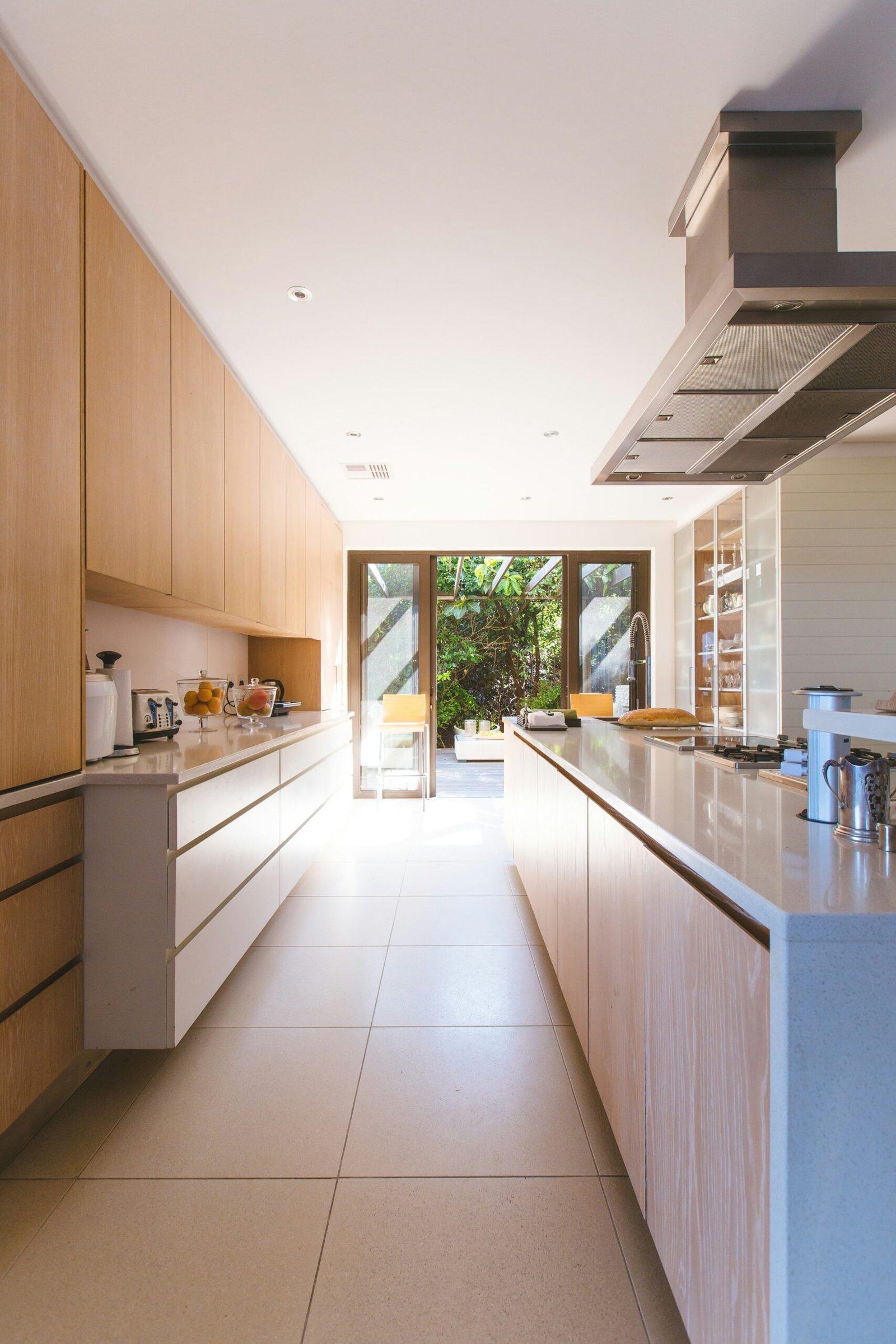
Maximizing Space Efficiency
One of the primary considerations in kitchen designing is making the best use of available space. Whether you have a compact kitchen or a larger space, efficient storage solutions are essential. Consider incorporating pull-out cabinets, rotating shelves, and vertical storage units to keep your kitchen clutter-free and functional.
Focusing on Functional Zones
Creating distinct functional zones can significantly improve your kitchen’s workflow. Designate areas for prep, cooking, cleaning, and storage. This separation ensures that multiple people can work in the kitchen simultaneously without obstructing each other. An efficient kitchen island can serve as both a prep and storage area, adding both style and utility.
Choosing the Right Materials
The materials you choose for your kitchen can impact both its functionality and aesthetics. Opt for durable and easy-to-clean materials for countertops and backsplash areas, such as quartz or granite. For cabinets, consider materials like hardwood or laminate that can withstand daily wear and tear. Additionally, selecting the right flooring, such as tile or hardwood, can add to the overall kitchen design.
Integrating Smart Technology
Modern kitchen designing increasingly incorporates smart technology for added convenience. From smart refrigerators to touchless faucets and voice-activated assistants, integrating technology can elevate your kitchen’s efficiency and comfort. Consider tech that enhances your cooking experience, such as smart ovens or induction cooktops that offer precise temperature control.
Emphasizing Lighting and Ventilation
Good lighting and proper ventilation are key elements in a well-designed kitchen. Utilize a mix of task lighting, ambient lighting, and accent lighting to create a versatile and well-lit space. Additionally, a powerful yet quiet range hood can help improve air quality, making your kitchen more comfortable to work in.




